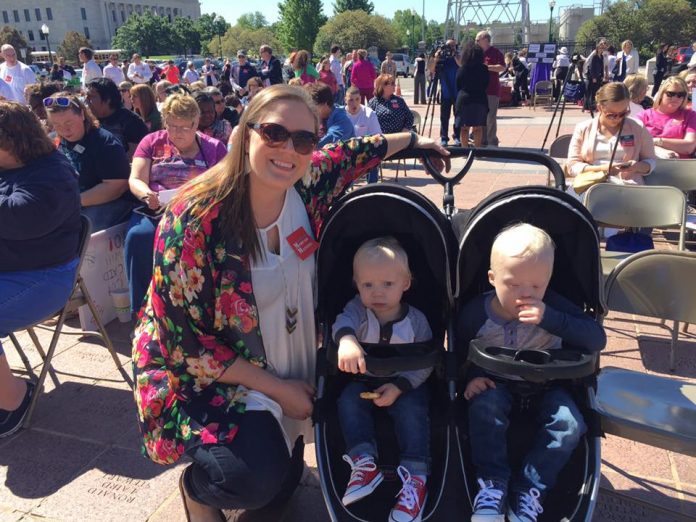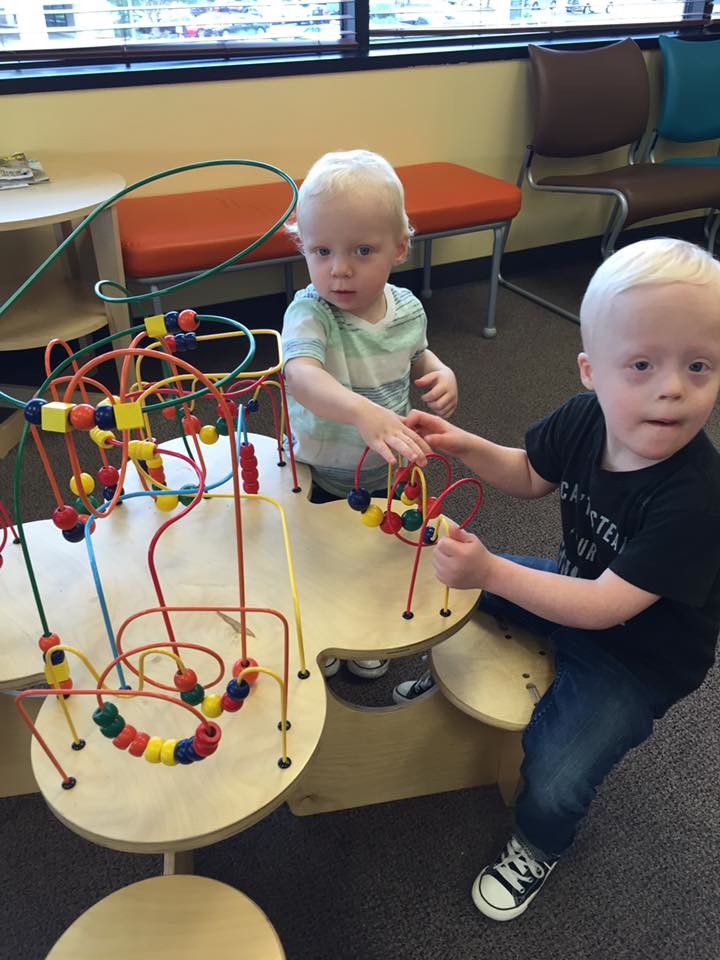
by Janice Carr
Healthcare is no longer an option for the neediest patients in Oklahoma. Linda calls again, one more call before she gets ready for work. The answer is still the same, “No, we don’t accept SoonerCare patients. You might want to check at the free clinic.” She starts to realize that even though she has insurance with SoonerCare, she still can’t get an appointment for Jon. Linda recalls the letter that arrived in the mail last week stating that the healthcare clinic where she took Jon is no longer accepting patients on SoonerCare. What will she do now? Twenty-five calls in one day and they all said, No! Marge, her neighbor said that she can’t find anyone to prescribe insulin for her diabetes. Marge said she wonders if she will just die. Linda stops at the free clinic since she has an hour before she has to be at work, but she has to take Jon to daycare because the line at the free clinic is so long. Does he have the flu or pneumonia? Will he get worse? Who will she call now? He’s so little and so sick, not even 1 years old.
On March 29, 2016, the Oklahoma Health Care Authority announced that Medicaid reimbursement will be reduced by 25% due to State budget cuts in Oklahoma (Killgore, 2016). The Oklahoma Health Care Authority is notifying SoonerCare providers that the rate cuts will begin on June 1. The cuts will affect all providers, including hospitals, physicians, and pharmacies. Medical service providers said the cuts will be devastating. These providers will have to cut salaries or stop accepting SoonerCare patients. The Oklahoma Health Care Authority contracts with more than 46,000 providers. Nearly 800,000 Oklahomans have SoonerCare.
According to Putnam (2016), Oklahoma State Medical Association (OSMA) leaders decided to urge physician members to consider dropping out of Medicaid. OSMA President Woody Jenkins stated that most physicians would end up losing money for each Medicaid patient that they see and the situation would be unsustainable for most medical practices and rural healthcare settings. Jenkins states that the OSMA will be offering information and guidance on their website for physicians who want to opt out of taking Medicaid patients.
So, the political jockeying for state funding continues with threats of reduced reimbursement and comeback threats of refusal to see patients, all in an attempt to secure more funding from the State Legislature during this budget crisis. Unfortunately, the threats are based on facts and not drama. The feasibility of healthcare resources drying up is a significant reality that will impact our most vulnerable citizens if we don’t stand up and say, NO!
First, we must contact our State Legislators and Governor with our concerns and a call to action. We need to come to the table with creative solutions and recommendations. The Oklahoma Policy Institute has developed a list of 16 options for solving the State Budget Crisis (Blatt, 2016). Selective tax increases and careful use of one-time funds makes sense in this economic climate. We must increase the tobacco tax to $1.50 per pack to fund healthcare. Please contact your Legislator and the Governor to support this legislation. Short term higher fuel taxes and broader sales taxes should also be considered. Please also appeal to your Legislator and the Governor for the use of the Rainy Day Fund for this issue. Lack of health care funding for our poor and underserved patients in Oklahoma is a Rainy Day. Don’t let this rain turn into an Oklahoma downpour with widespread flooding! Stand up and speak up for our most vulnerable population!
Janice Carr is a professor at Southern Nazarene University School of Nursing. She teaches nursing students about healthcare policy and patient advocacy in a Professional Nursing Trends and Issues course and has taught for the past 5 years. She has previously worked in nursing management and education in the hospital setting prior to her work in academia and has worked as an RN in Oncology and Medical-Surgical Nursing.
Janice completed her Bachelor of Science in Nursing degree from the University of Oklahoma in 1985, a Master in Education with emphasis on professional health occupations from the UCO in 1993 and a Master of Science in Nursing (MSN) degree from Oklahoma Baptist University in 2011. She is currently working towards completion of a Doctorate in Nursing Practice (DNP) degree with expected graduation in December of 2016. Janice has successfully completed her Certified Nursing Educator (CNE) exam and works closely with nursing students to help them reach their academic and nursing goals.
Janice is married to David Carr and they have one daughter, Micaela who is 15 years old. They enjoy serving in their church, family time, and active vacations.
References
Blatt, D. (2016). New fact sheet outlines Oklahoma’s options for solving the budget emergency. Oklahoma Policy Institute. Accessed on April 16, 2016. Retrieved from http://okpolicy.org/options-solving-budget-emergency/
Killgore, J. (2016). OHCA to propose provider rate cuts. Oklahoma Health Care Authority. Accessed on April 16, 2016. Retrieved from http://www.okhca.org/about.aspx?id=18904
Putnam, C. (2016). Oklahoma State Medical Association urges doctors to mull leaving Medicaid over 25 percent rate cut. Oklahoma Policy Institute. Accessed on April 16, 2016.Retrieved from http://okpolicy.org/author/carly













